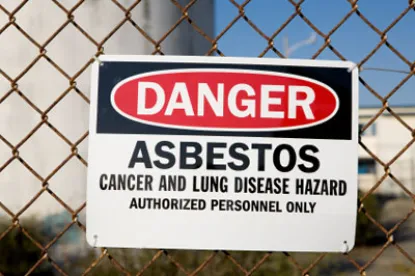West Virginia State Senate passes SB 411, creating the Asbestos Bankruptcy Trust Claims Transparency Act and the Asbestos and Silica Priorities Act. Next, the bill goes to the House of Delegates for review and likely passage.
The bill, introduced in the Senate on 2/4/15, was much-debated within the legal, business and medical communities. The culmination of days of hearings, negotiations, amendments and conferences resulted in the final bill, as amended and unanimously passed. While certainly not perfect, SB 411 appears to strike a fair balance between the allocation of financial resources to truly injured plaintiffs and the open-arms policies of West Virginia courts.
Medical criteria requiring a showing of impairment, and not just a diagnosis, in the case of a non-malignant lung disease is a component of the bill. Plaintiffs with malignant diseases, and presumably decreased life expectancy, would have the best opportunity at obtaining a trial date. Defendants involved in those cases have the opportunity to obtain documentation showing all the products and exposures which plaintiff and counsel believe caused the disease.
By requiring disclosure of all materials produced by plaintiff to the numerous bankruptcy trusts in the claims filing process, the bill enables defendants to learn, and potentially present to jurors at trial, the complete picture of a plaintiff’s work history and asbestos exposures. The work history often provided in the civil litigation is like a Cliffs’ Notes or Readers Digest version of a plaintiff’s job and exposures.
By establishing a method wherein plaintiff must file a claim with any asbestos bankruptcy trust for which he meets the stated criteria, the bill assures that plaintiff can access maximum financial recovery, often from the products which today’s defendants assert were most causative of plaintiff’s disease. The lack of any thermal insulation manufacturing defendants in today’s asbestos litigation results in jurors comparing minute or de minimus exposures by a plaintiff to products still legally saleable in the United States, but ignores the reality of plaintiff’s worksites in the 1960’s and 1970’s.
The trend among states is moving toward similar bankruptcy transparency legislation. While the FACT Act is unlikely to pass and become the law of the country, states are asserting their own rights and capabilities in managing the economic and personal toll that asbestos litigation continues to exact from all involved.



 />i
/>i
